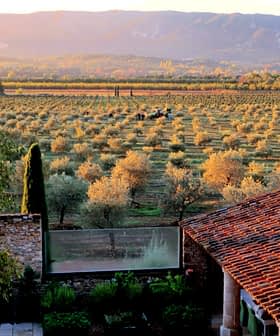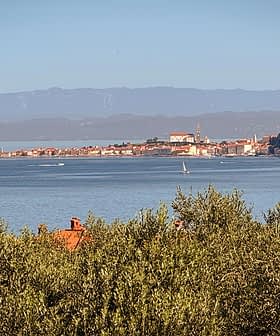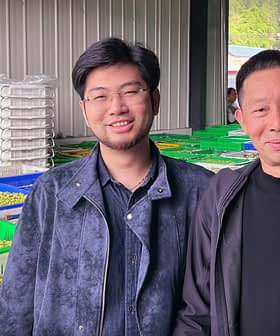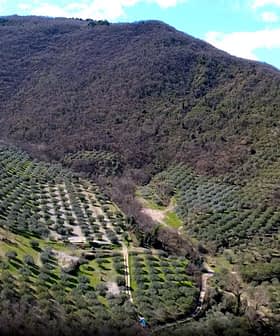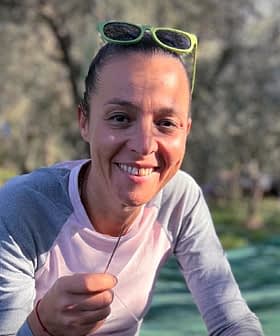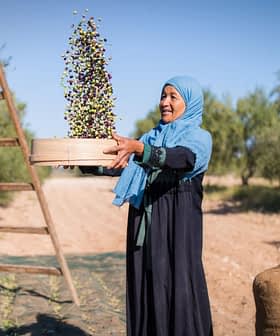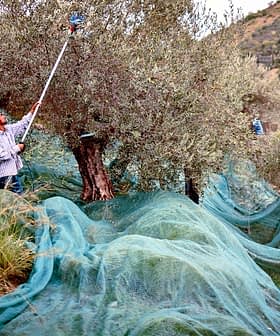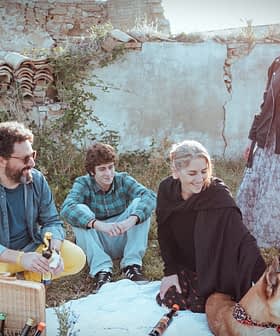Forging a Future for Olive Oil Production on Corfu
Apostolos Porsanidis-Kavvadias is following in the footsteps of his grandfather, returning to Corfu to revitalize the family olive grove and the island’s olive oil sector.
 Photos courtesy of Markos Kyprianos
Photos courtesy of Markos KyprianosDr. Kavvadia Olive Oil, founded by an orthopedic surgeon turned olive oil producer on the Greek island of Corfu, has become a notable player in the Greek olive oil sector, producing high-quality organic olive oil. The company, led by the founder’s grandson, has won awards in international competitions and is expanding its operations to include a new olive variety and agri-tourist establishment on the island.
Situated less than 20 kilometers (12 miles) off the northwestern coast of Greece, in the Ionian Sea, the island of Corfu has long been known for its beaches and rich cultural heritage.
And now, an unlikely family of olive oil producers is also seeking to turn the island into a focal point of Greek production.
Back then, producing olive oil in Corfu was like sailing into uncharted waters… Everybody was laughing at us, saying that the island makes the worst olive oil in Greece.
Back in the 1950s, Apostolos Kavvadias, an orthopedic surgeon in Athens, was looking for a new career path and decided to produce olive oil part-time from his centenary trees on Corfu.
While musculoskeletal surgery and olive oil production may seem worlds apart, Kavvadias brought the same dedication and methodical planning to both.
See Also:Producer ProfilesThe result was the production of high-quality extra virgin olive oil from his Lianelia trees, a feat at odds with the island’s past, where there has never been a noteworthy tradition of olive oil production.
Kavvadias utilized simple methods, including a traditional stone press to extract the oil, postulating that any added water or the use of a centrifugal system would diminish its quality. He also believed that the best crops came from naturally-grown olive trees.
Kavvadias set the foundations of Dr. Kavvadia Olive Oil, one of the very few producers in Corfu to enter the illustrious world of extra virgin production.
These days, Apostolos Porsanidis-Kavvadias, the founder’s grandson, is behind the company and has taken Dr. Kavvadia from a part-time project to a name to be reckoned with in the Greek olive oil sector.
“The first distinction for the quality of our extra virgin olive oil came in 2013,” Porsanidis-Kavvadias told Olive Oil Times. “Then our olive oil qualified for a European Union health claim for the phenols it contained.”
“But we could never imagine that our organic monovarietal olive oil from Lianelia would be the only one from Corfu to earn prizes in several international competitions, including a Gold Award at the prestigious NYIOOC World Olive Oil Competition in 2018,” he added.
The brand continued its win streak with a Silver Award in the 2020 edition of the world’s largest and most prestigious olive oil quality competition.
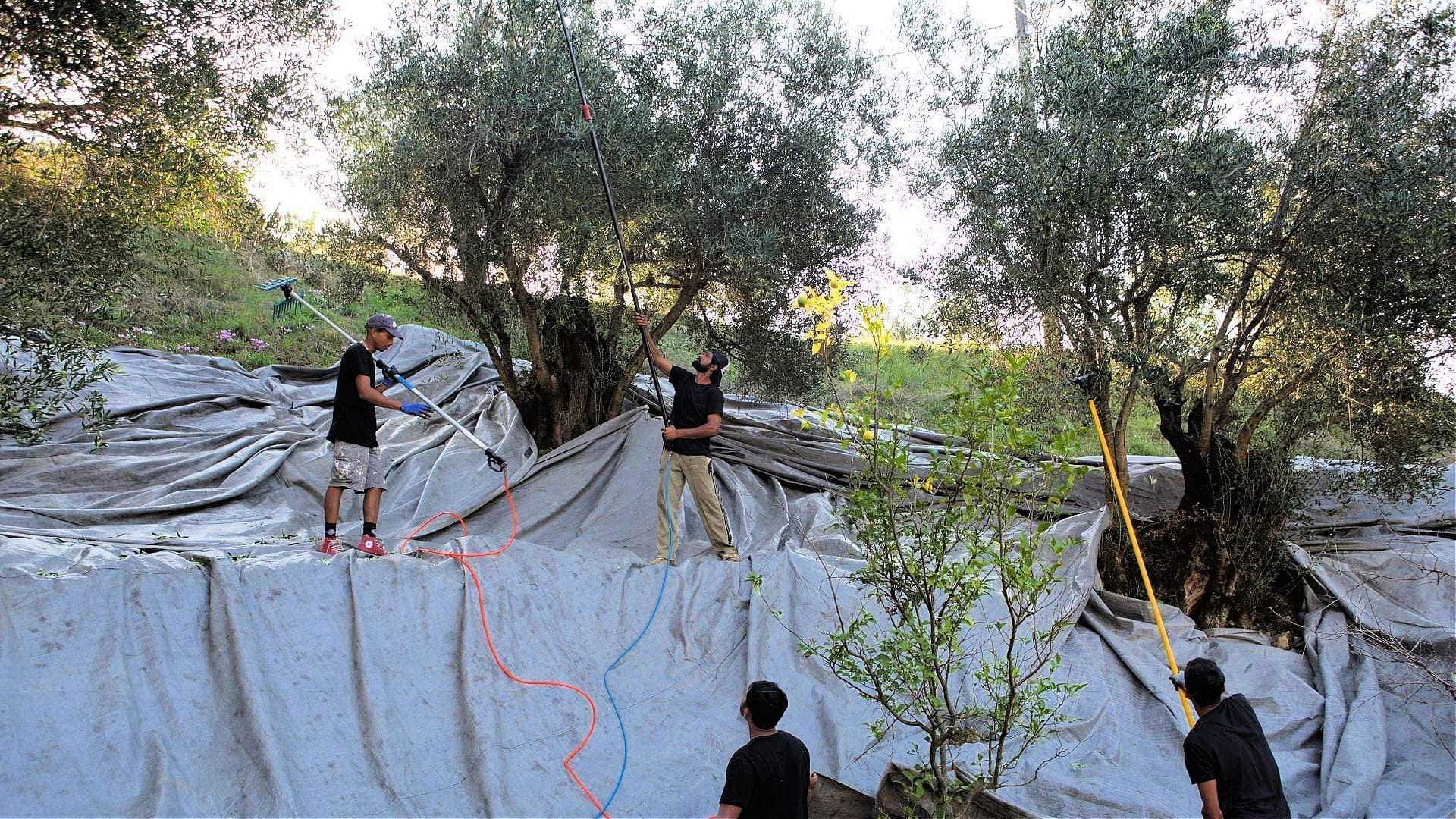
Harvest at Dr. Kavvadia Olive Oil
An industrial designer living and working in Paris, Porsanidis-Kavvadias returned to his ancestral home in Corfu in 2010, where he took up the mantle of caring for the family’s olive trees and land.
“I had no chance of practicing my profession in Greece, so I decided to work with my grandfather’s olive groves,” Porsanidis-Kavvadias said. “We started our company in 2011 and the first quantities of olive oil were produced a year later.”
Making headway in the olive oil industry was no walk in the park for Dr. Kavvadia. Corfu was off the map of the olive oil making territories of Greece, and Porsanidis-Kavvadias had no prior experience in growing and harvesting olive trees.
“Back then, producing olive oil in Corfu was like sailing into uncharted waters,” he said. “In the beginning, we were pressing our olives at the nearby convent of Kamarela since there was no substantial processing infrastructure on the island. Everybody was laughing at us, saying that the island makes the worst olive oil in Greece and that we were doomed to fail.”
“I was completely clueless about olive trees and olive oil,” he added. “I could not even hold a hand pruner straight. After a lot of mistakes and failures, attending seminars and reading books, traveling and searching on the web, my endless quest finally made me understand how olives and olive oil work.”
Honoring his grandfather’s legacy, Porsanidis-Kavvadias keeps his business simple and straightforward, applying organic cultivation and gentle techniques in the field and during harvest.
“Organic farming has been the way to go since the beginning,” he said. “We have also added some elements of permaculture and natural farming. We respect the environment, we never harrow the soil, we cause no destruction. We maintain a healthy ecosystem in our groves so that our olive trees remain healthy and balanced, and consumers receive a food product containing no pesticides or chemical fertilizers.”
“Harvest begins in October and lasts until mid-November,” he added. “We use some electrical equipment, and of course our hands. The olives are put in plastic crates for the air to circulate and the olive oil extraction process takes place daily and within hours from harvest to achieve top quality.”
The result is a medium fruity, medium bitter, and medium pungent extra virgin olive oil, carrying an E.U. health claim for its polyphenol content, which plays an important part in protecting blood lipids from oxidative stress.
Despite some drawbacks in the local olive oil sector, Kavvadia is ready to make a big leap forward by expanding the company’s facilities and adding a new olive variety to its arsenal.
“Until recently, no one in Corfu produced quality olive oil and the techniques and knowledge on harvesting and milling the olives were outdated,” Porsanidis-Kavvadias said.
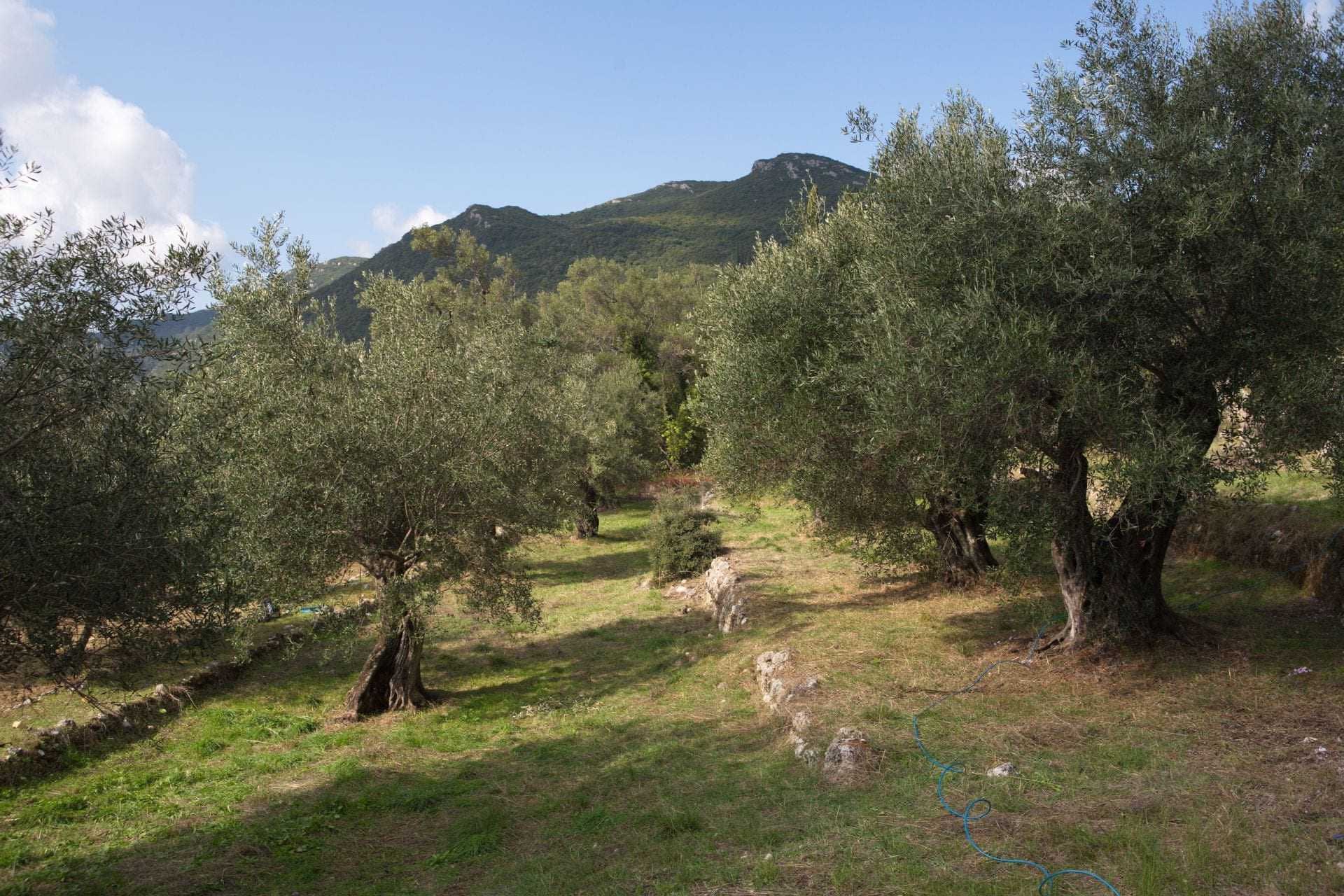
“We are in the process of creating a multi-functional estate with an agri-tourist establishment at our home base of Tzavros village, including a new processing and bottling unit to have complete control over production,” he added. “We have also come across another native olive variety of Corfu, Thiako, which produces olive oil with fruity notes and a great flavor and we intend to market it.”
Dr. Kavvadia Olive Oil plans ahead and respects its origins, using a native olive variety to deliver top-quality olive oil with special traits that exemplify the terroir of Corfu.
“My grandfather believed as a physician that when the highest quality olive oil is produced correctly, it is as good as medicine,” Porsanidis-Kavvadias said. “Dr. Kavvadia Olive Oil is a product of passion and love. It is produced from a rare olive variety, it is unusually rich in polyphenols and beneficial to our health. On top of that, it tastes amazing.”


